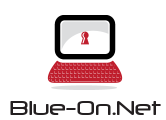In today’s globalized world, the authentication of documents is essential for various purposes, including international travel, business transactions, and legal proceedings. Document authentication services play a crucial role in verifying the validity and authenticity of important documents, ensuring that they are recognized and accepted across borders and jurisdictions. This article explores the significance of document authentication services and provides insights into how individuals and businesses can streamline the authentication process.
Document authentication involves verifying the legitimacy of a https://usauptrend.com/the-vital-role-of-commissioners-for-oaths-in-calgary-alberta/ and confirming the authority of the signatures and seals affixed to it. This process is particularly important when dealing with documents issued by foreign governments or organizations, as it helps to prevent fraud and ensure compliance with legal requirements. Common documents that require authentication include birth certificates, marriage certificates, educational transcripts, and corporate records.
One of the primary reasons for document authentication is to facilitate international transactions. Whether it’s establishing a business presence overseas, immigrating to another country, or studying abroad, individuals and businesses often need to submit authenticated documents to government agencies, educational institutions, or commercial entities. Authentication helps to build trust and confidence in the integrity of the documents, thereby reducing the risk of rejection or delays in processing.
Document authentication services offer a convenient and efficient way to authenticate documents for use abroad. These services are typically provided by government agencies, embassies, consulates, and authorized third-party service providers. The authentication process typically involves several steps, including verification of the document’s authenticity, certification of signatures and seals, and issuance of an official authentication certificate or stamp.
To initiate the authentication process, individuals or businesses must submit the original document along with any supporting materials to the appropriate authentication authority. The authority then verifies the document’s authenticity, ensuring that it meets the required standards and complies with relevant regulations. Once verified, the authority affixes an official seal or stamp to the document, certifying its authenticity and validity for use abroad.
In some cases, documents may require additional steps, such as notarization or legalization, depending on the requirements of the receiving country. Notarization involves having a notary public witness the signing of the document and affix their seal or signature to certify its authenticity. Legalization, on the other hand, involves obtaining further authentication from the embassy or consulate of the receiving country to confirm the validity of the document for use within their jurisdiction.
To streamline the document authentication process, individuals and businesses can take several proactive steps. First, they should familiarize themselves with the authentication requirements of the receiving country and gather all necessary documents and information in advance. This includes ensuring that the documents are properly translated, if required, and that any supporting materials are included with the submission.
Additionally, individuals and businesses can leverage the services of authorized third-party authentication providers to expedite the process. These providers offer expertise and assistance in navigating the complexities of document authentication, saving time and effort for their clients. By outsourcing the authentication process to reputable service providers, individuals and businesses can ensure that their documents are authenticated efficiently and accurately, thereby avoiding delays and complications in their international endeavors.
In conclusion, document authentication services play a critical role in ensuring the validity and authenticity of documents for international use. By understanding the significance of document authentication and following best practices for streamlining the authentication process, individuals and businesses can facilitate smooth and successful transactions across borders and jurisdictions. With the help of authorized authentication providers and adherence to relevant regulations, individuals and businesses can navigate the complexities of document authentication with confidence and peace of mind.

